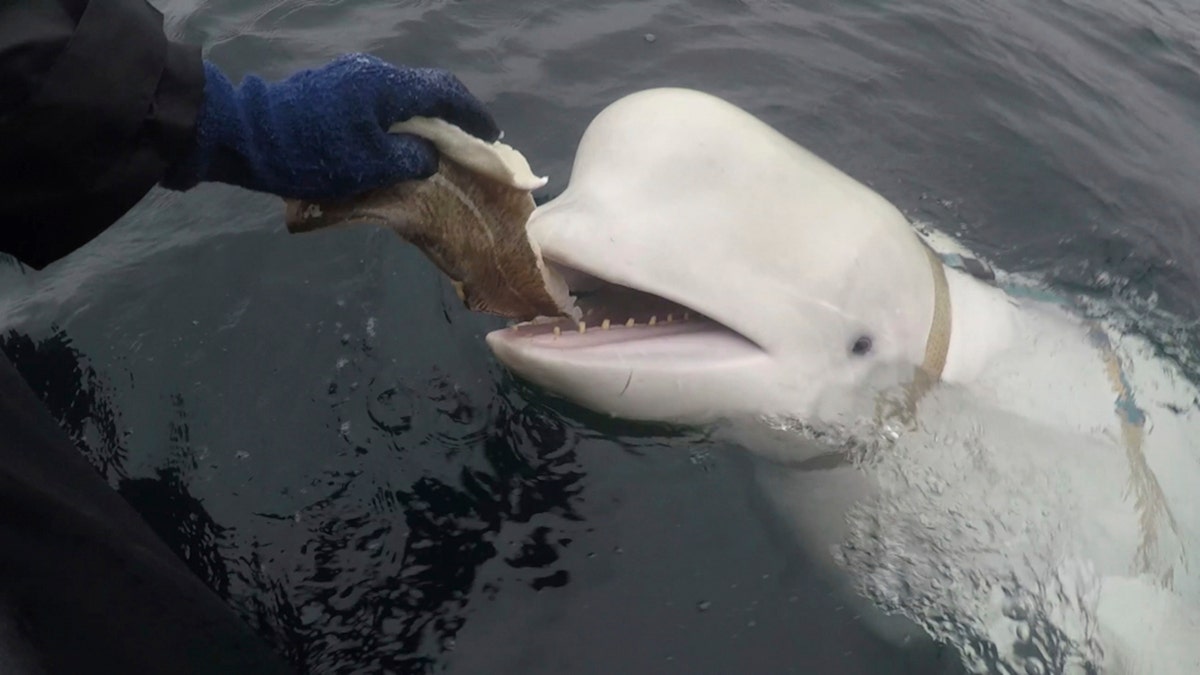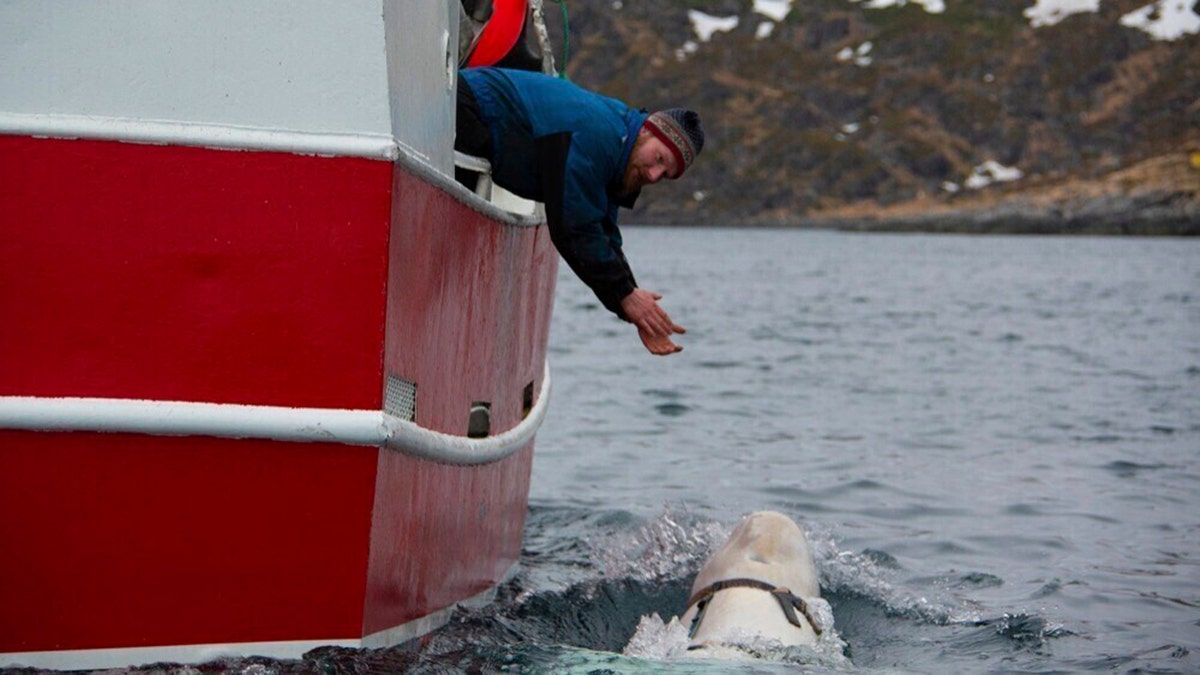INTERNACIONAL
Gang kills at least 26 villagers in remote Papua New Guinea, officials say

At least 26 people were killed by a gang in three remote villages in Papua New Guinea’s north and eight villagers remained missing Friday in the latest violence in the South Pacific island nation relating to contested land ownership and sorcery allegations, officials said.
«It was a very terrible thing … when I approached the area, I saw that there were children, men, women. They were killed by a group of 30 young men,» the acting police commander in East Sepik province, James Baugen, told Australian Broadcasting Corp. on Friday.
PAPUA NEW GUINEA SAYS LANDSLIDE BURIES OVER 2,000 PEOPLE ALIVE
Baugen said all the houses in the villages had been burned and the remaining villagers had taken shelter at a police station, too scared to name the perpetrators.
«Some of the bodies left in the night were taken by crocodiles into the swamp. We only saw the place where they were killed. There were heads chopped off,» Baugen said. He said the attackers were hiding and there were no arrests yet.
Chris Jensen, country director for the aid group World Vision, said 26 people were confirmed dead, eight were missing and 51 families were displaced from their homes in Angoram district on the crocodile-infested Sepik River, the longest river on New Guinea island.
Performers in traditional dress stand outside of Parliament Haus in Port Moresby, Papua New Guinea, on Nov. 16, 2018. At least 26 people have been reported killed by a gang of men in three remote villages last week in Papua New Guinea’s north, United Nations and police officials said on Wednesday, July 24, 2024. (AP Photo/Mark Schiefelbein)
«The trigger seems to be, as it is in most cases in PNG, a combination of a couple of things. But sorcery seems to be one of the triggers along with land ownership,» Jensen told The Associated Press.
«An individual will get accused of sorcery and they may be the people who perhaps have some control over some assets or land,» Jensen said.
U.N. Commissioner for Human Rights Volker Turk said in a statement Wednesday that the attacks happened on July 16 and July 18.
«I am horrified by the shocking eruption of deadly violence in Papua New Guinea, seemingly as the result of a dispute over land and lake ownership and user rights,» Turk said.
Turk said the dead included 16 children.
«This number could rise to over 50, as local authorities search for missing people. In addition, more than 200 villagers fled as their homes were torched,» Turk said.
The Royal Papua New Guinea Constabulary in the capital, Port Moresby, did not immediately respond to a request for comment on Friday.
East Sepik Gov. Allan Bird said violence across the diverse nation of more than 10 million people, who are mostly subsistence farmers, has escalated in the past decade. Police are under-resourced and rarely intervene, Bird said.
Papua New Guinea has more than 800 Indigenous languages and has been riven by tribal conflicts over land for centuries. Most of the country’s land belongs to tribes rather than individuals, with no clear borders.
The conflicts have become increasingly lethal in recent decades as combatants move from bows and arrows to assault rifles. Mercenaries are increasingly becoming involved.
Blake Johnson, an analyst at the Australian Security Policy Institute think tank, said while the East Sepik slayings appeared to be a particularly gruesome event, «it is not the first instance of mass murder this year» in Papua New Guinea.
«Escalation of violence between groups, often leading to retaliatory murder is, at best, culturally accepted and at worst encouraged,» Johnson said.
Law enforcement officers lack the resources and training to police most of the country, he said.
«The country is too big, too harsh and too difficult to navigate, and we don’t even know how many people live in these places,» Johnson said.
Papua New Guinea’s tribal fighting attracted international attention in February, when at least 26 combatants and an unconfirmed number of bystanders were killed in a gun battle in Enga province.
Ongoing conflict complicated the emergency response in May when a landslide in the same province devastated at least one village. The government said more than 2,000 people were killed, while the United Nations estimated the death toll at 670.
Internal security problems in Papua New Guinea, the South Pacific’s most populous country after Australia, have become a battle line for China’s struggle against the U.S. and its allies for influence in the region.
CLICK HERE TO GET THE FOX NEWS APP
Australia, Papua New Guinea’s former colonial master and its biggest provider of aid, signed a bilateral security pact last year that targets its nearest neighbor’s growing security concerns, while Beijing also reportedly wants to ink a policing agreement with it.
In 2022, China struck a secretive security pact with Papua New Guinea’s near-neighbor Solomon Islands which included police aid and has raised concerns that a Chinese naval base could be established in the South Pacific.
INTERNACIONAL
Was a beloved whale suspected of being a Russian ‘spy’ killed in Norway?

Havldimir quickly became a celebrity in Norway, swimming his way into their Nordic hearts.
But this beluga whale’s odd story started in 2019 when he was discovered in northern Norway near the island of Ingoya wearing a harness with «Equipment St Petersburg» written in English connected to a mount for a small camera.
Hvaldimir, as Norwegians dubbed him – mixing together the Norwegian word for whale and Russian President Vladimir Putin’s name – was intelligent, friendly and responded to hand signals, leading Norway’s spy agency to believe he had been held in captivity by Russia and used for research purposes.
Once Hvaldimir was freed from his harness, though, his friendly personality made him beloved in the country.
CRITICALLY ENDANGERED WHALE SEEN OFF CALIFORNIA COAST: ‘EVERY SIGHTING IS INCREDIBLE VALUABLE TO US’
Hvaldimir was found in 2019 wearing a harness with a camera mount on it. (Jorgen Ree Wiig/Sea Surveillance Service/Handout/NTB Scanpix via Reuters/File Photo)
He was fed and monitored by the Norwegian government and dubbed a «free-swimming whale» by the Norwegian Orca Survey, venturing as far as Sweden but always returning home, according to The Telegraph.
Hvaldimir was found dead off southern Norway last weekend.
«It’s absolutely horrible,» marine biologist Sebastian Strand, who worked with Marine Mind, told Norwegian public broadcaster NRK. «He was apparently in good condition as of (Friday), so we just have to figure out what might have happened here.»
BREACHING WHALE CAPSIZES BOAT AFTER LANDING ON TOP OF IT OFF NEW HAMPSHIRE, SHOCKING VIDEO SHOWS

Hvaldimir, being fed here, became beloved in Norway. (orgen Ree Wiig, Norwegian Directorate of Fisheries via AP)
Hvaldimir may have died of natural causes, but conservation groups NOAH and One Whale have filed police reports claiming he was shot, according to the Telegraph.
The Oceanic Preservation Society said that a necropsy will be done on Hvaldimir to determine his cause of death in the next few weeks.
«We’ve been absolutely devastated over the news, and are deeply saddened that humanity failed this beloved whale,» the organization said on social media.

He was fed and monitored by the Norwegian government and dubbed a «free-swimming whale» by the Norwegian Orca Survey, venturing as far as Sweden but always returning home. (Jorgen Ree Wiig, Norwegian Directorate of Fisheries via AP)
Nonprofit Marine Mind said on Facebook that Hvaldimir «bridged the gap» between humans and wild animals in a way «few can.»
CLICK HERE TO GET THE FOX NEWS APP
«Hvaldimir was not just a beluga whale; he was a beacon of hope, a symbol of connection, and a reminder of the deep bond between humans and the natural world,» the organization said. «Over the past five years, he touched the lives of tens of thousands, bringing people together in awe of the wonders of nature. His presence taught us about the importance of ocean conservation, and in doing so, he also taught us more about ourselves.»
Reuters and the Associated Press contributed to this report.
-
POLITICA2 días ago
La represión a los jubilados, un espejo en el que duele reconocerse
-
POLITICA1 día ago
“Estúpido” y “exlibertario”: reapareció Cristina Kirchner y cruzó muy duro a Javier Milei
-
POLITICA1 día ago
Milei versus Cristina: el Presidente le responde a la exvicepresidenta en el Congreso del IAEF y habla sobre el dólar y el cepo
-
POLITICA2 días ago
Javier Milei planea exponer el Presupuesto en el recinto de Diputados y ya genera polémica con la oposición
-
POLITICA2 días ago
Argentina – Chile, en vivo
-
CHIMENTOS2 días ago
La versión de Victoria Onetto sobre su «aventura» con Alberto Fernández





























